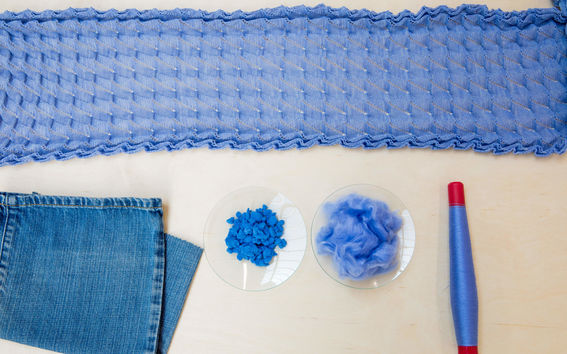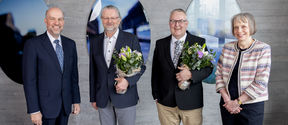Aalto University is one of the founding shareholders of the newly established Ioncell Oy, a company which will commercialise the Ioncell® technology developed at Aalto. The technology enables the production of high-quality textile fibres from wood and cellulosic textile waste in an ecologically sustainable way. These textiles can be used to make clothing, household products and nonwoven fabrics. The company's CEO and main shareholder is M.Sc. Antti Rönkkö, who will transfer from Nanso Group on 11.07.2022.
‘The world needs completely new solutions to meet the sustainability challenges of the textile industry. The competitive advantages of Ioncell® fibre are its ecological production process, high quality and recyclability. I believe that the company has a promising future in the international market,’ says Rönkkö.
Over the next 10 years, Ioncell Oy aims to have a 5-10% share of the international textile fibre market of over EUR 200 billion, which would bring the company hundreds of millions in licensing revenue.
The company's third founding partner, Professor Herbert Sixta, will continue to develop the Ioncell® technology in the company. ‘We have already proven that the Ioncell® technology works on a smaller scale. Next, we will develop the manufacturing process towards the industrial scale,’ says Sixta. Rönkkö estimates that the Ioncell® technology will be ready for commercial production in about 5-10 years.
Aalto University became a partner in the company to accelerate the development of the Ioncell® technology. ‘Almost 100 companies are created at Aalto every year, but this is the first time Aalto University has become a founding partner in the company. We want to develop a business that drives sustainability on a global scale,’ says Janne Laine, Vice President for Innovation at Aalto University.
Accelerating research-based business is an important task for Aalto University. ‘We intend to continue to be involved in setting up companies that aim to commercialize promising innovations generated by research at Aalto University,’ he says.
EUR 200 billion market
The world produces more than 100 million tonnes of textile fibres each year. The market consists of many different textile fibres used for different purposes and is worth a total of around EUR 200 billion.
Global demand for textile fibres is growing. However, the amount of land suitable for growing cotton is shrinking and the awareness of the environmental impact of synthetic oil-based fibres, such as microplastics, is increasing. The Ioncell Oy founders are convinced that their technology offers a solution to the sustainability challenge facing the textile industry. The manufacturing process uses recyclable ionic liquids that are safe for the environment and for people. Ilkka Kilpeläinen, a professor at the University of Helsinki, has played a significant role in the development of ionic liquids.
The Ioncell® technology has also received international attention. The Marcus Wallenberg Prize of 2022 was awarded to Kilpeläinen and Sixta as the latest recognition of their research.
Strong and recyclable fibre
Ioncell® fibre is strong, feels comfortable on the skin and can be recycled. In tests at Aalto University, the technical properties of Ioncell® fibres have proven to be better than those of cotton and current man-made cellulosic fibres.
Textile fibres made from wood also bind the carbon stored in the wood throughout the life of the fibre, which can last for a long time if it is recycled. As a cellulose-based fibre, Ioncell® is also biodegradable and does not release microplastics, unlike oil-based fibres.
The fibre manufacturing process has recently been developed with a pilot line at Aalto University's premises in Otaniemi. Ioncell Oy continues to develop the technology in Otaniemi. The company aims to build its own demonstration plant within two years.













